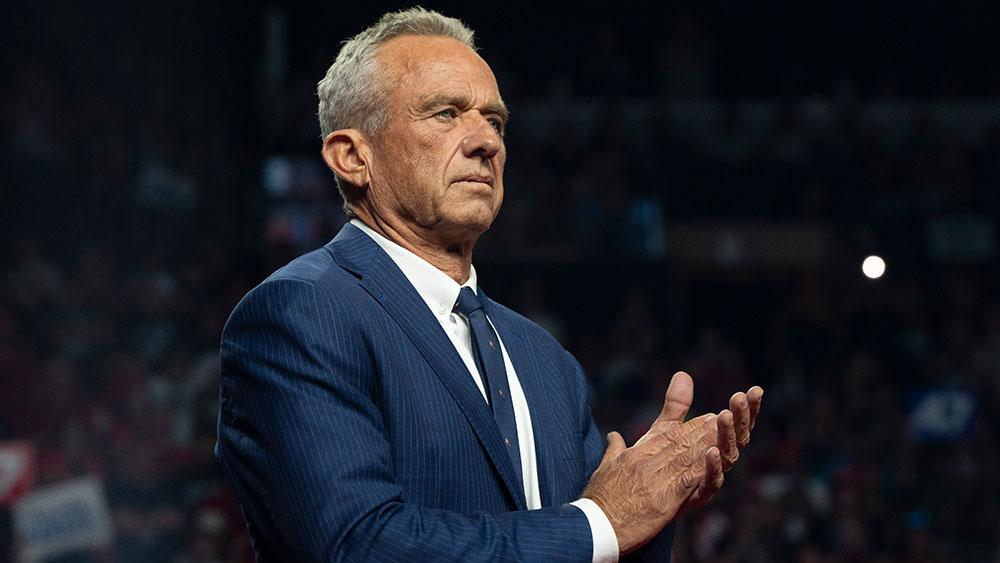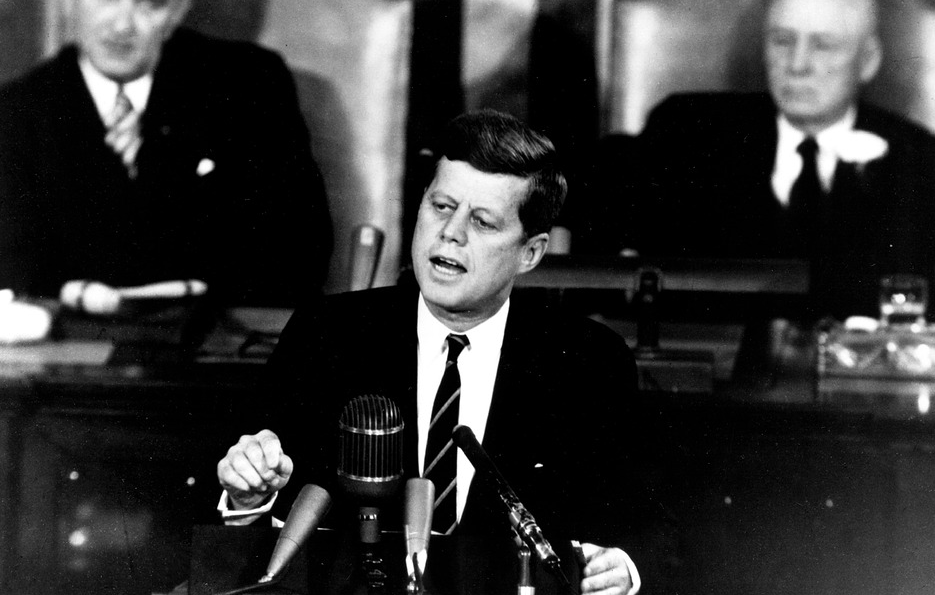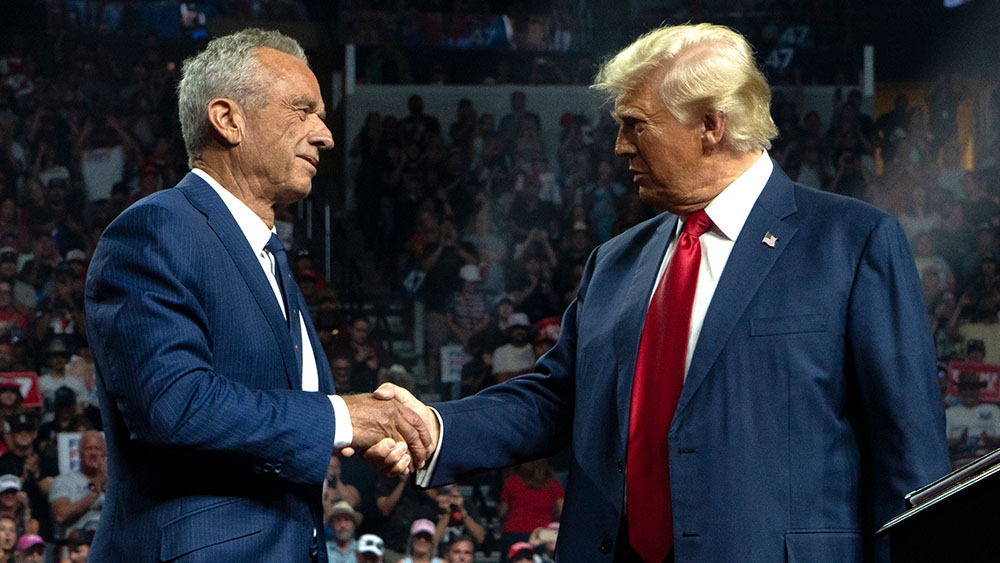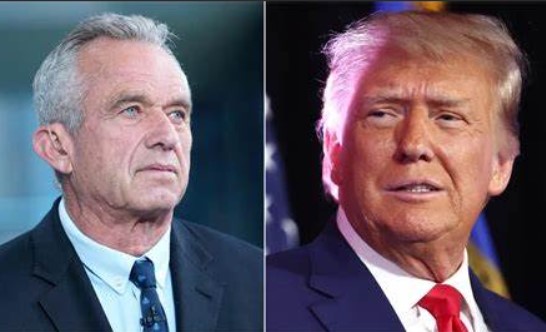 Parler
Parler Gab
Gab
- Kennedy's HHS confirmation hearings expose deep pharmaceutical industry influence in Washington.
- Senators like Bernie Sanders and Elizabeth Warren, who criticize Kennedy, have received significant donations from Big Pharma.
- Kennedy highlights the complexity of healthcare rights and the need to hold drug companies accountable for public health.
- Bipartisan senators, including Bill Cassidy and Ron Wyden, show aggressive questioning, revealing conflicts of interest.
- Senators' financial ties to Big Pharma raise concerns about their objectivity and public health priorities.
Big Pharma's money talks
Sen. Bernie Sanders (I-VT), who has received nearly $2 million in pharmaceutical donations, led the charge with aggressive questioning. Sanders, known for his progressive stance on healthcare, asked Kennedy if healthcare is a human right but refused to let him elaborate, cutting him off with a demand for a simple "yes" or "no" answer. Kennedy, however, pointed out the complexity of the issue, differentiating between unalienable rights and government-mandated services. Sanders' behavior highlighted the hypocrisy of a senator who claims to fight for the people while accepting substantial funds from the very industry he criticizes. Sen. Elizabeth Warren (D-MA), another vocal critic of Kennedy, has accepted nearly $1.2 million from the pharmaceutical industry. During the hearing, Warren accused Kennedy of wanting to sue vaccine manufacturers to enrich himself, a claim Kennedy firmly denied. "Senator, you’re asking me not to sue pharmaceutical companies," Kennedy stated, to which Warren, visibly flustered, responded, "No, I’m not!" Warren's anger and defensiveness underscored the conflict of interest she faces, given her significant financial ties to Big Pharma.Bipartisan hypocrisy
The influence of pharmaceutical money is not confined to one party. Republican Sen. Bill Cassidy (R-LA), chair of the Senate HELP Committee, has received $996,737 from the pharmaceutical industry. Cassidy's questioning of Kennedy was equally aggressive, focusing on the potential financial impact of holding drug companies accountable for harm. Kennedy’s response, emphasizing the need to protect public health, was met with hostility, revealing the deep entanglement of Big Pharma with both Democratic and Republican lawmakers. Sen. Ron Wyden (D-OR), the ranking member of the Senate Finance Committee, has accepted $502,063 from the pharmaceutical industry. Wyden’s questioning of Kennedy was marked by a lack of objectivity, further highlighting the influence of Big Pharma on his stance. Kennedy directly called out the committee, stating, "The problem of corruption is not just in the federal agencies. It’s in the Congress too. Almost all the members of this panel, including yourself, are accepting millions of dollars from the pharmaceutical industry and protecting their interests."Financial ties and personal investments
The financial disclosures of several senators reveal even more concerning conflicts of interest. Sen. Patty Murray (D-WA), the ranking member of the Senate HELP Committee, has received $776,760 from the pharmaceutical industry. Her spouse holds significant investments in pharmaceutical companies, raising questions about the family’s financial interests in the industry. Sen. Susan Collins (R-ME) has accepted $315,798 from the pharmaceutical industry, and her spouse holds stock in multiple pharmaceutical companies, including Johnson & Johnson and Merck & Co. Sen. Lisa Murkowski (R-AK) has received $147,727 from the pharmaceutical industry and has personal investments in health-related hedge funds and startups. Robert F. Kennedy Jr.’s confirmation hearings have laid bare the extensive influence of the pharmaceutical industry on Capitol Hill. Senators who are supposed to represent the interests of the American people are instead beholden to the interests of Big Pharma, a reality that puts public health at risk. As the Senate prepares to vote on Kennedy’s nomination, the battle between industry ties and public health reform will come to a head. Will lawmakers prioritize corporate profits or the well-being of the American public? Sources for this article include: AmGreatness.com YourNews.com ZeroHedge.comSanders grills RFK Jr. over baby onesies in heated HHS confirmation hearing
By Cassie B. // Share
Trump vows to release JFK, RFK, and MLK assassination files in push for transparency
By Cassie B. // Share
Report: RFK pressures Trump to ban direct-to-consumer pharma advertising
By News Editors // Share
Trump administration shuts down USAID, ending decades of covert operations
By finnheartley // Share
Far-left journo admits 'no country' can deal with 'an influx of millions' of migrants
By newseditors // Share
RFK Jr.’s confirmation hearings expose senators' ties to Big Pharma
By isabelle // Share










